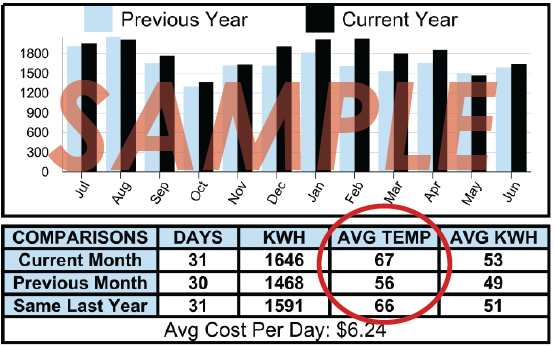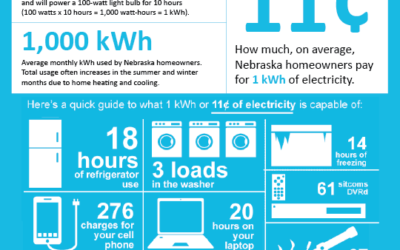
Did you know that a big chunk of your electric bill goes towards keeping your home comfortable? Heating in the winter and cooling in the summer can significantly impact your energy consumption.
The Temperature Tango
When the mercury soars or plummets, the HVAC system works overtime to maintain your desired indoor temperature. This extra effort can lead to a noticeable increase in your electric bill.
Here’s the golden rule: The closer the thermostat setting is to the outdoor temperature, the less energy your system will use.
- Summertime Savings: Aim for a higher indoor temperature. This will reduce the strain on your air conditioner. When you’re away from home, consider raising the thermostat a few degrees. When you’re home, set it to a comfortable level that also helps control humidity.
- Wintertime Wisdom: Lowering the thermostat can save energy. Aim for around 68°F to 70°F when you’re awake and lower it while you’re asleep or away. Remember, the longer your home stays at a lower temperature, the more energy you’ll save.
A Note About Heat Pumps
If you have a heat pump, programmable thermostats aren’t always the best choice. In cooling mode, a heat pump acts like an air conditioner, so raising the thermostat can save energy. However, when it’s heating, adjusting the thermostat up and down can decrease efficiency. For heat pumps, maintaining a steady, moderate temperature is generally the most cost-effective approach.
Understanding Your Bill
To help you track energy usage, we include the average monthly temperature on your electric bill. This allows you to compare the current month’s temperature to the previous month and the same month last year which can show how weather impacts your energy consumption.
By understanding how temperature affects your electric bill, you can make informed decisions to reduce energy consumption and save money.
OTHER NEWS
WATT’S UP? A kilowatt-hour defined
1 kWh = 1,000 watt-hours 1 kilowatt-hour (kWh) of energy is equal to 1,000 watt-hours and will power and 100-watt light bulb for 10 hours (100 watts x 10 hours = 1,000 watt-hours = 1 kWh). 1,000 kWh The average monthly kWh used by Nebraska homeowners. Total usage...
Just ‘kidding’ around: Goat yoga offers laughter in the pasture
By Chelsea Gengenbach, Communications Specialist Goat yoga. If these words are leaving you a bit perplexed, you’re in good company. I had the chance to observe the Great Plains Goat Yoga Gathering in rural Buffalo County, and the echoes of laughter in the pasture have...
Between the lines: My job
By Gwen Kautz, General Manager gkautz at dawsonpower.com 308-324-2386 “You’re the boss, I don’t understand why you can’t make this decision? Just what is your job?” The questions caught me off guard as I had been working with an unhappy customer who felt his concerns...



